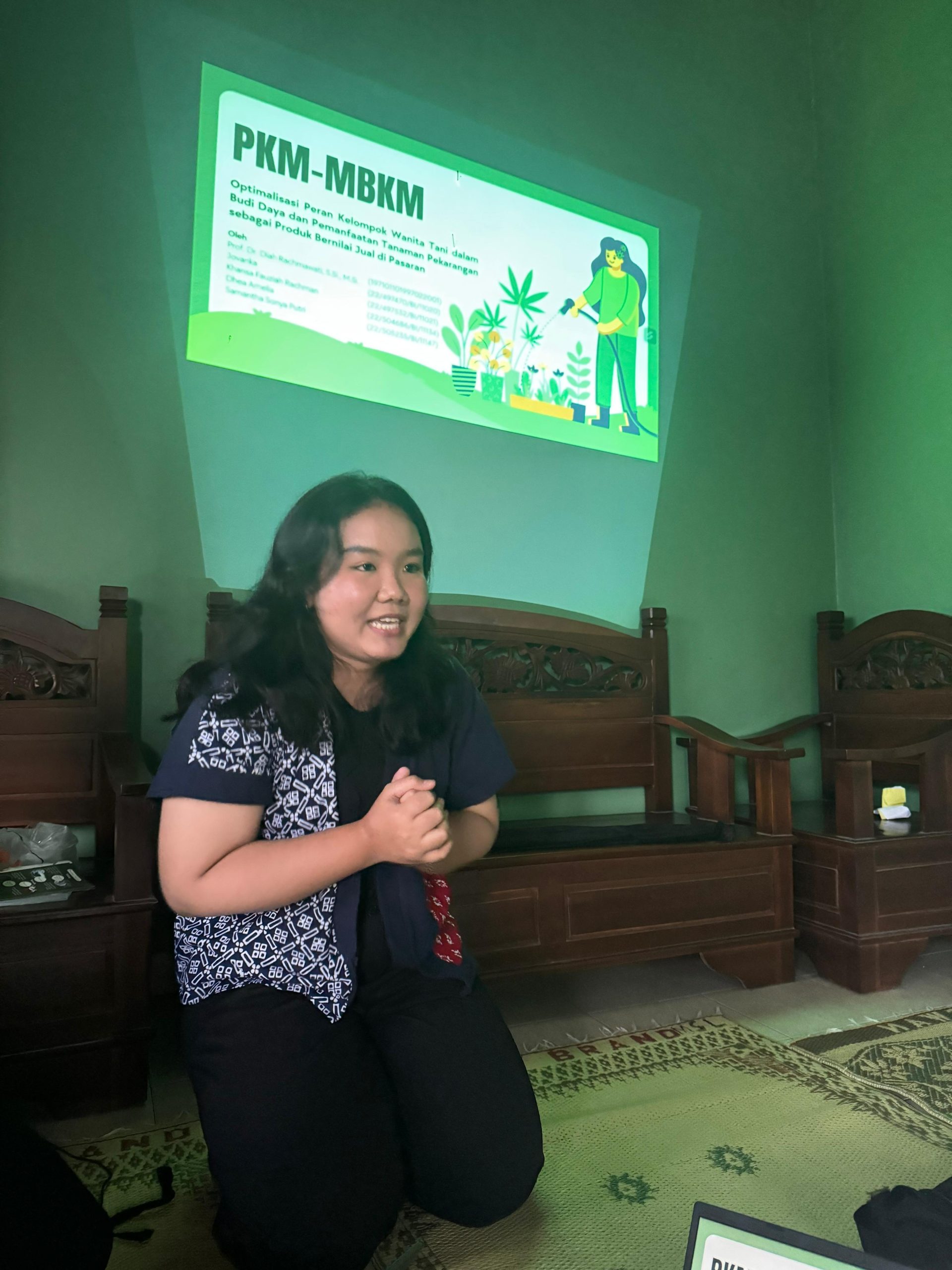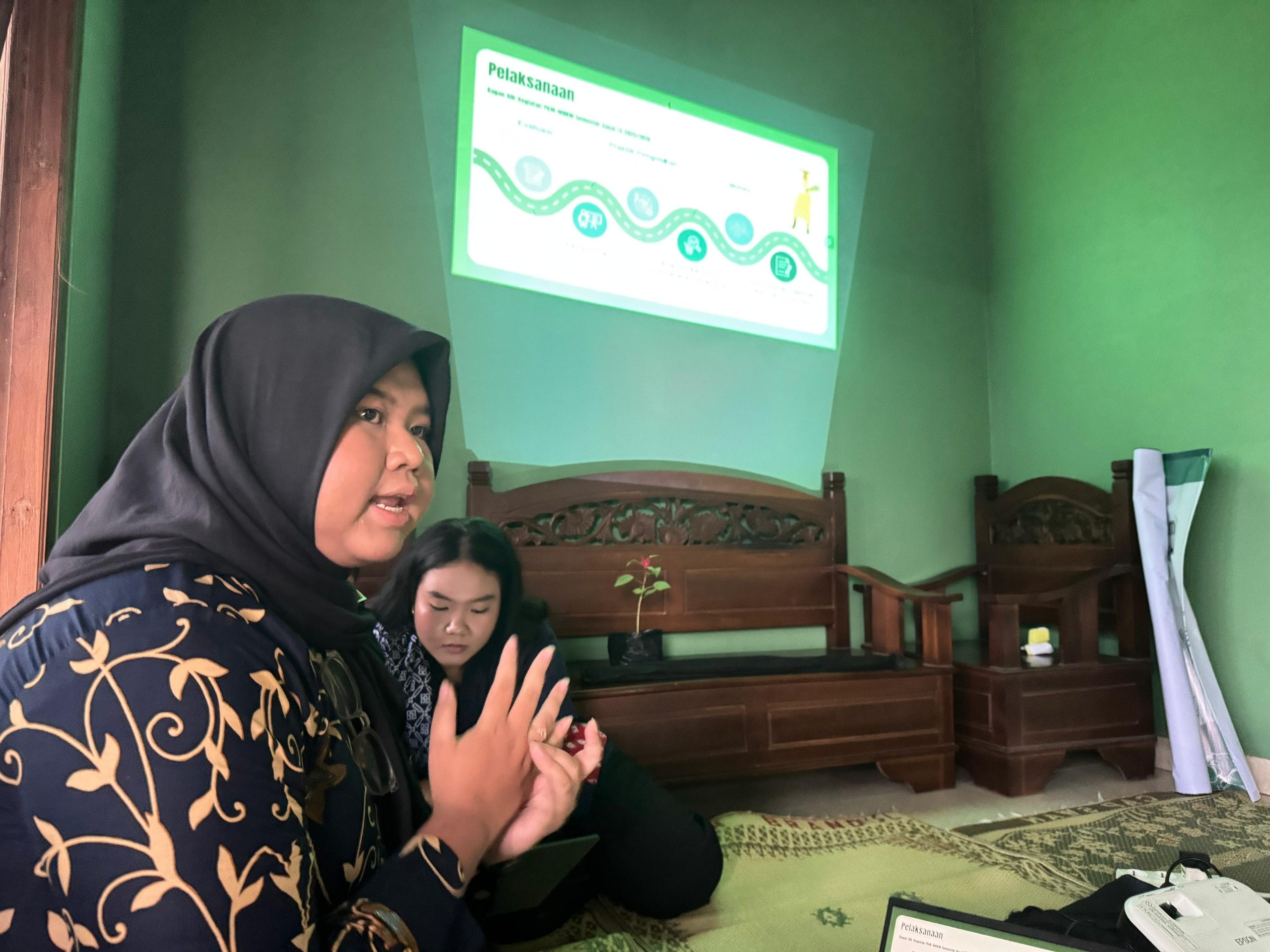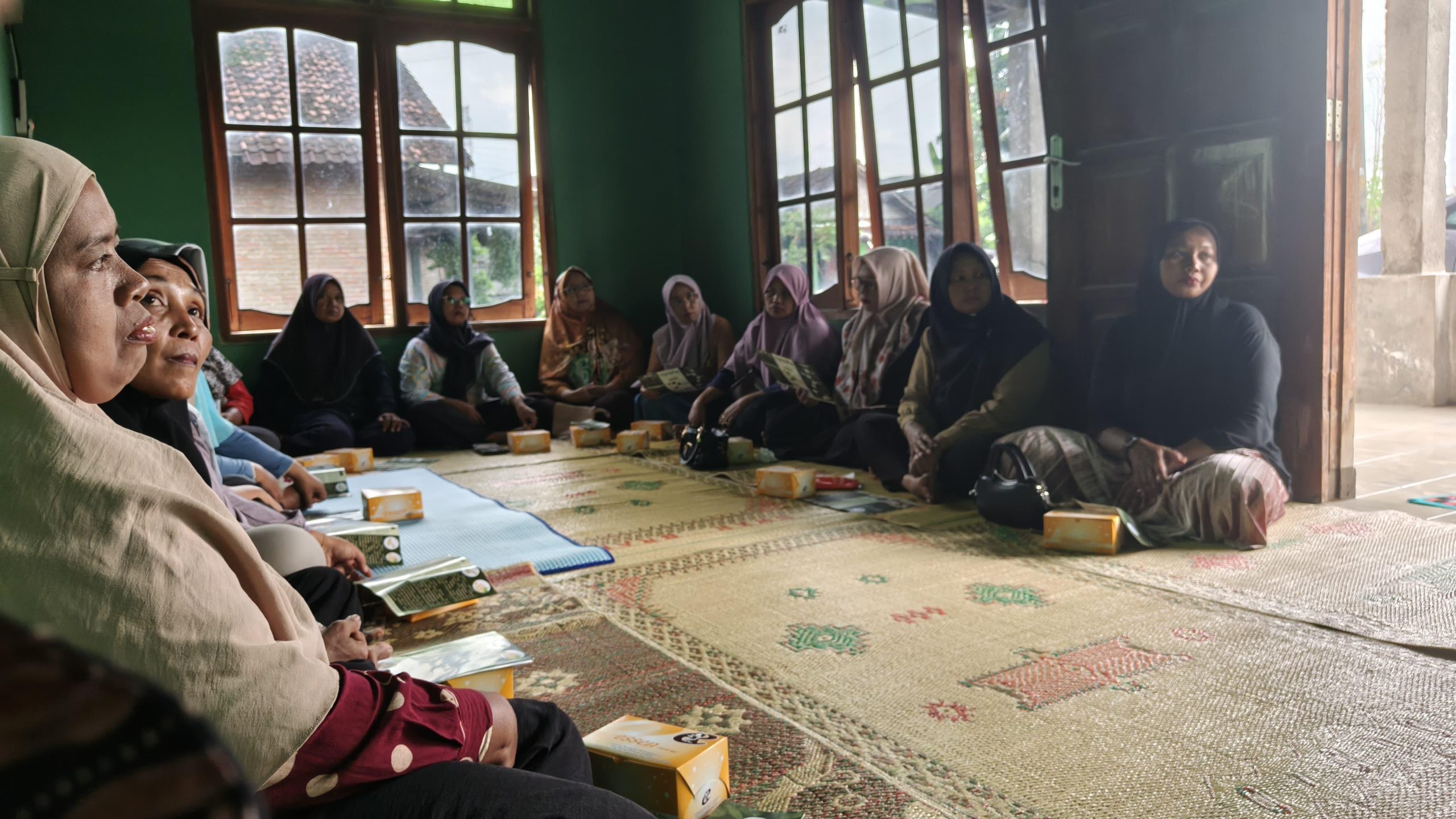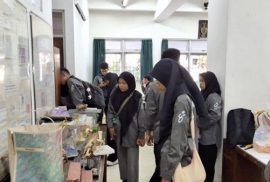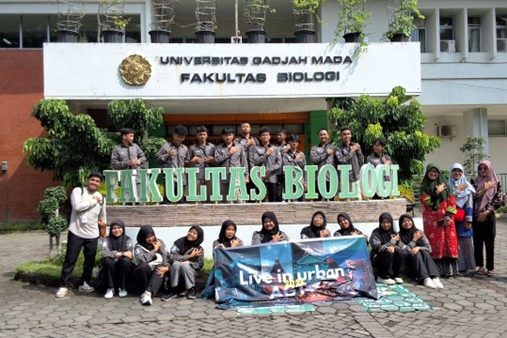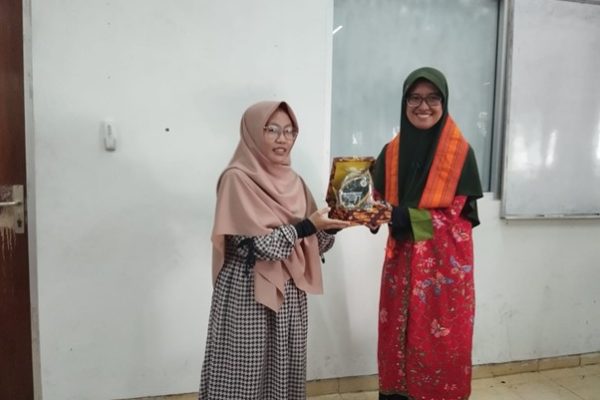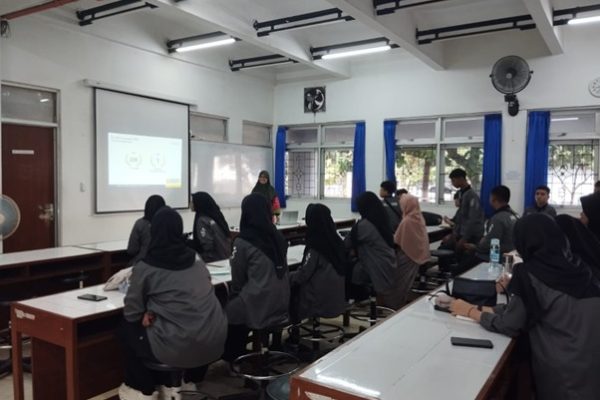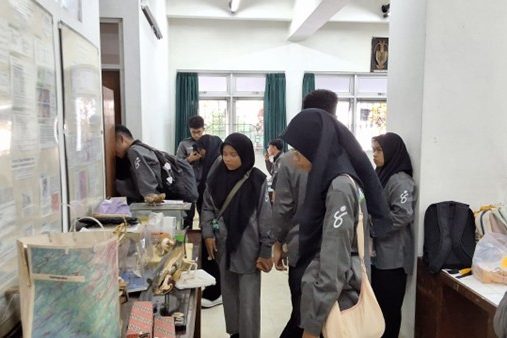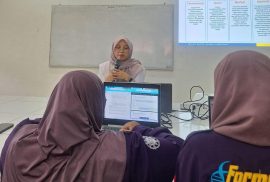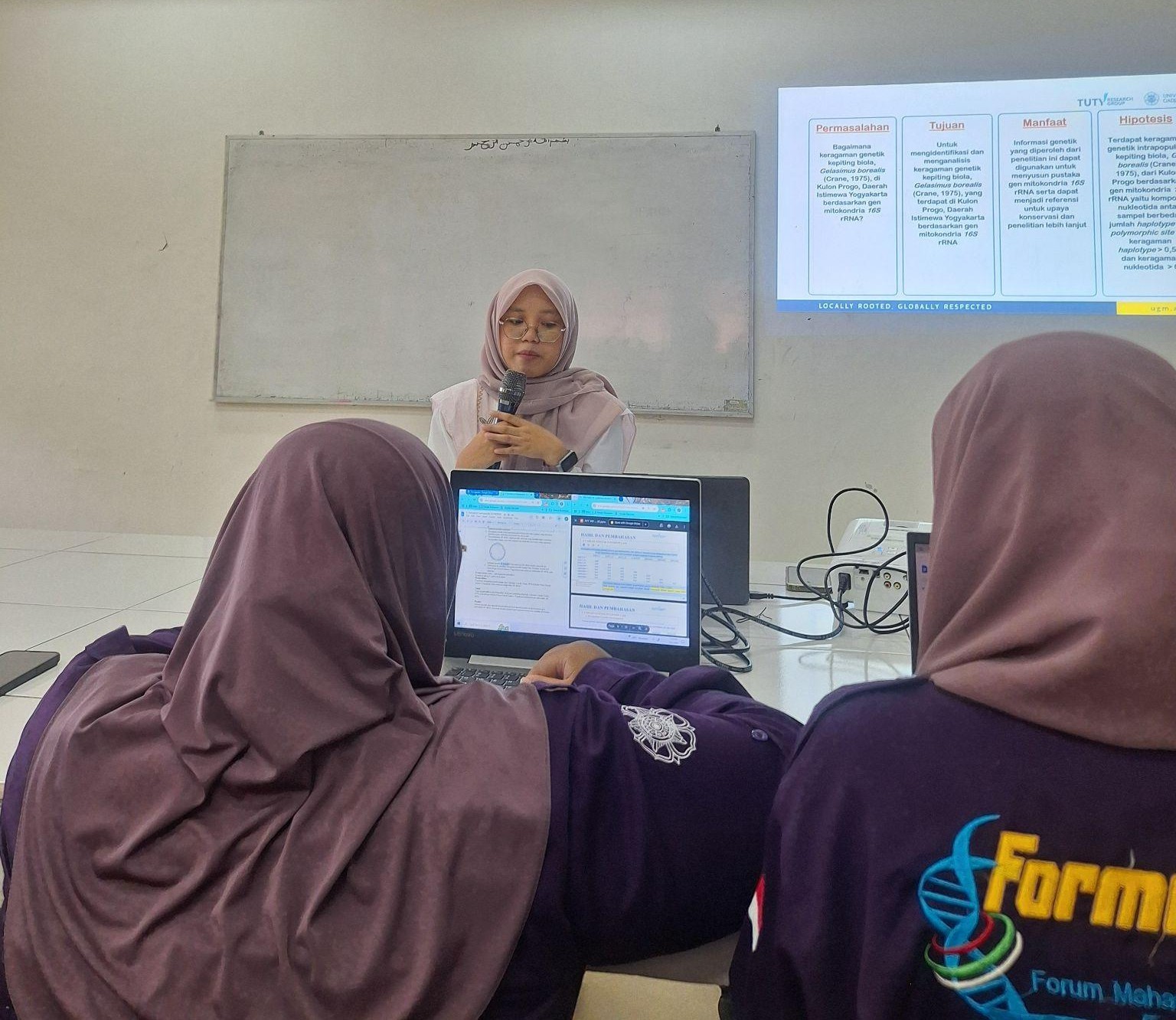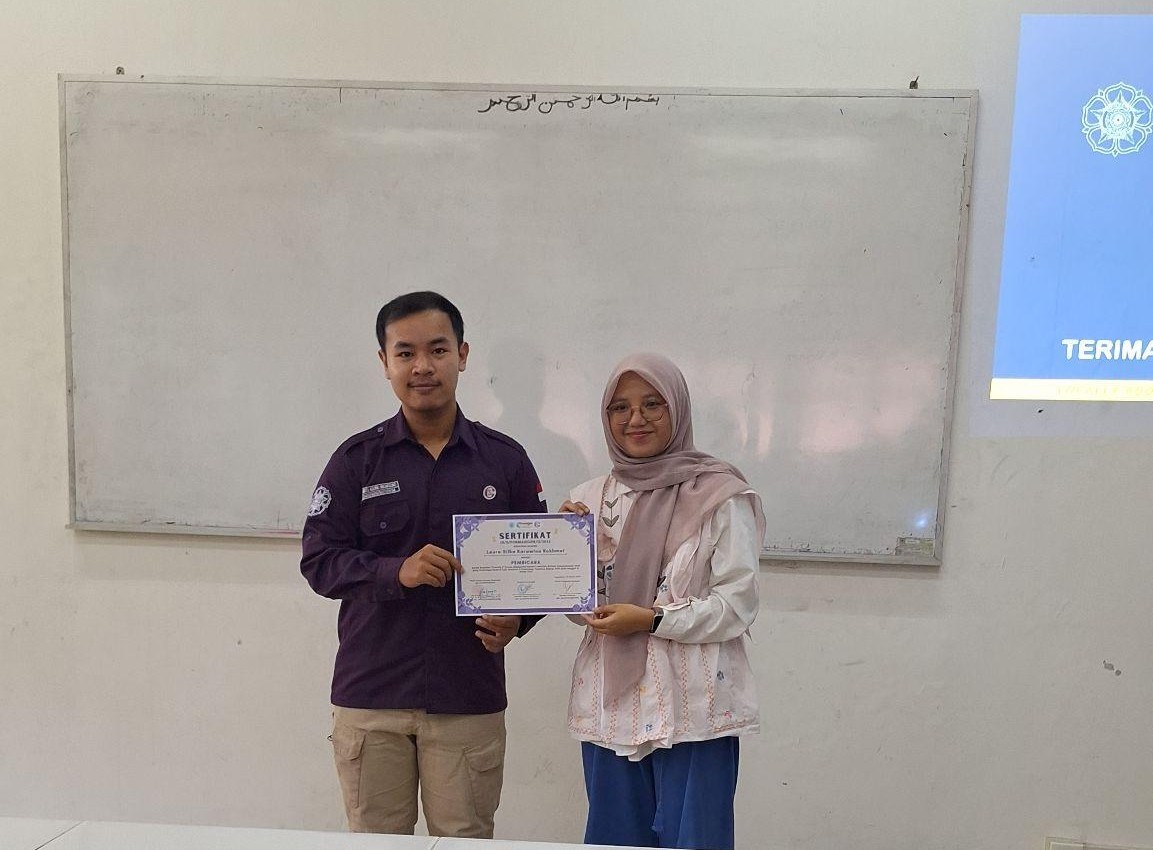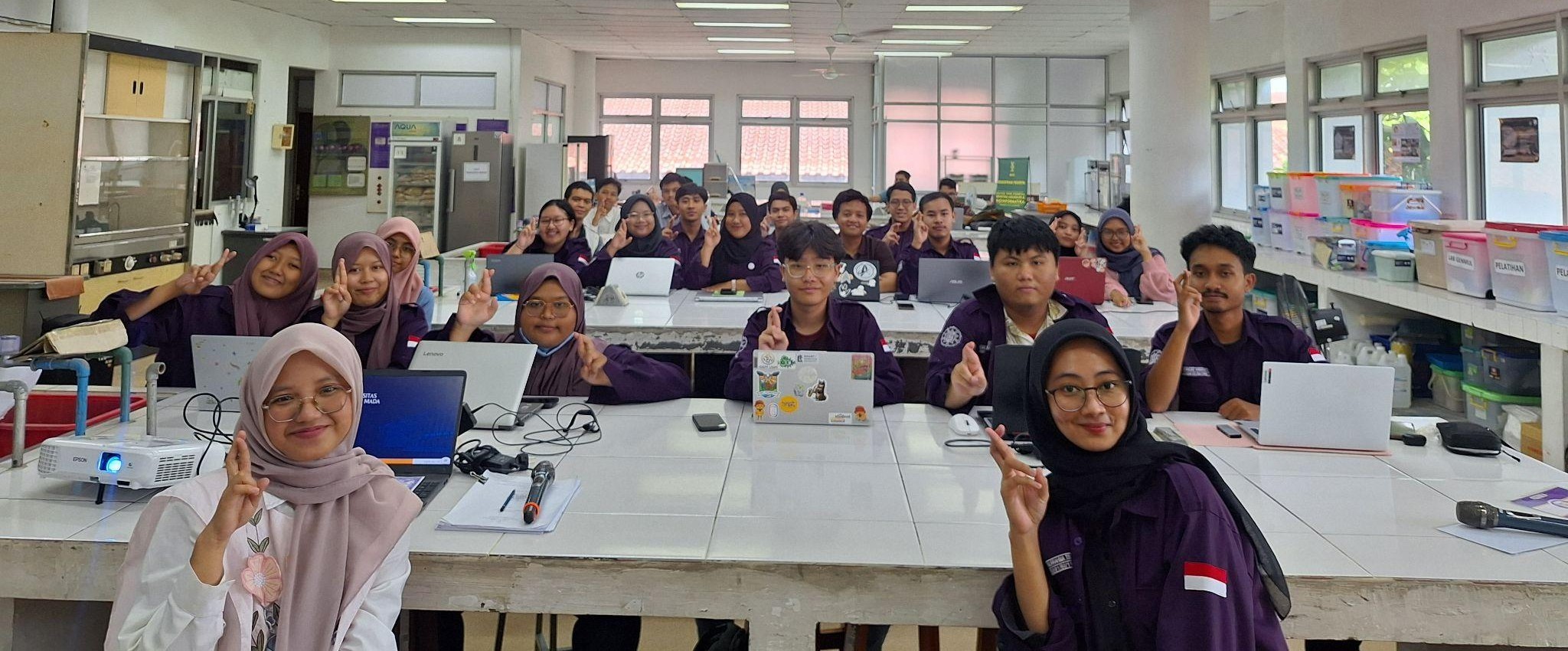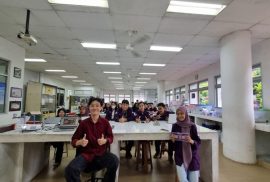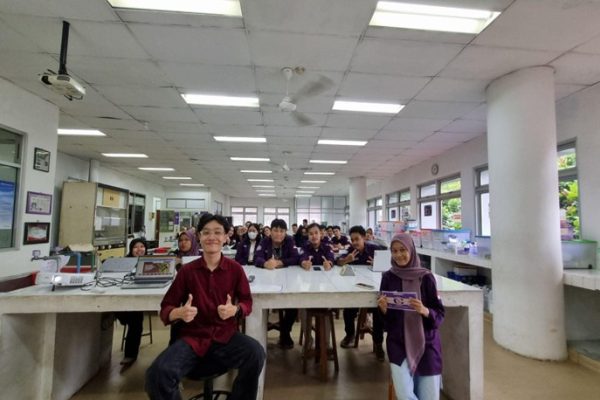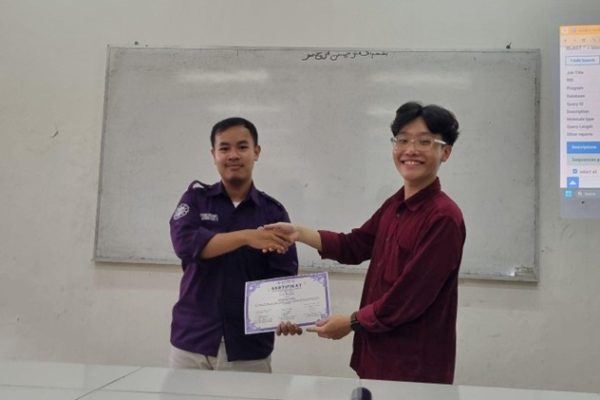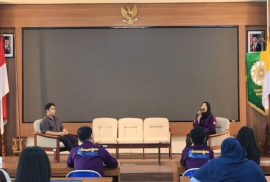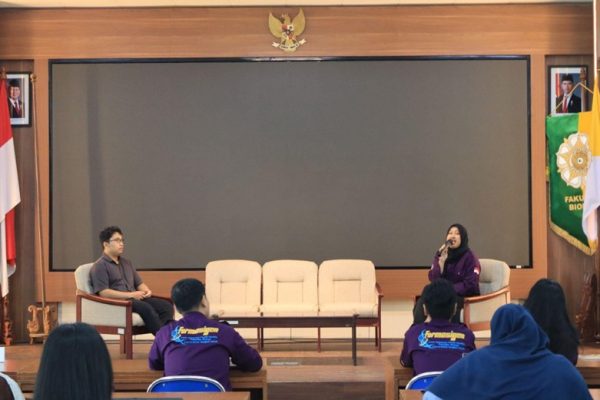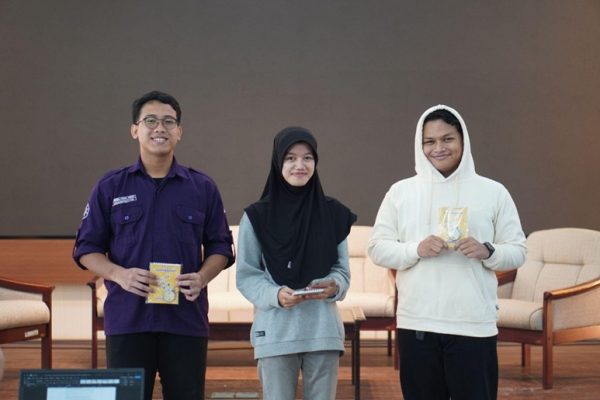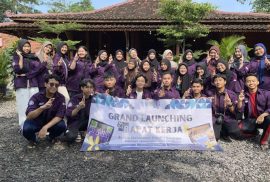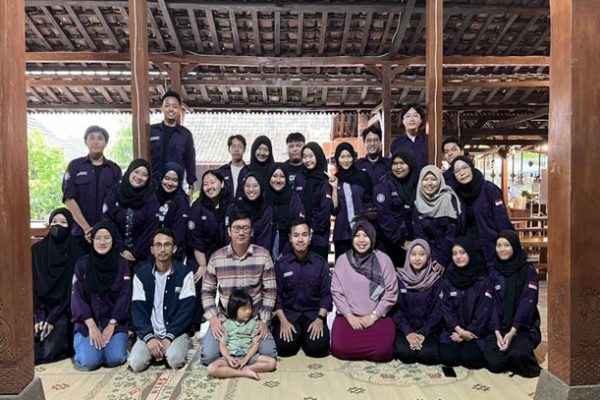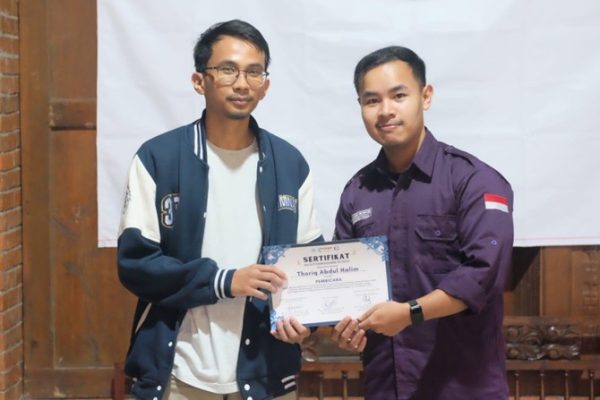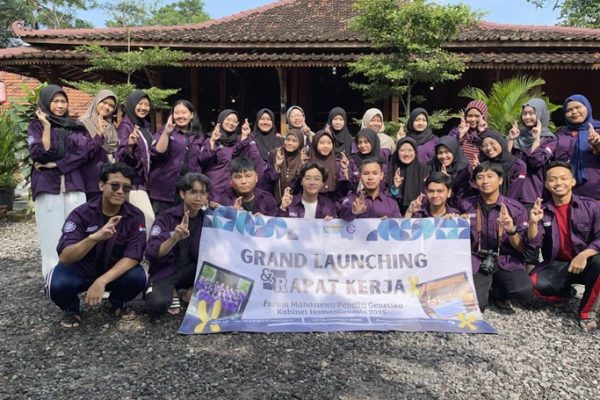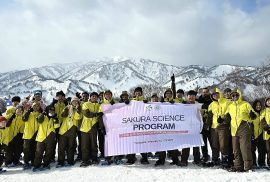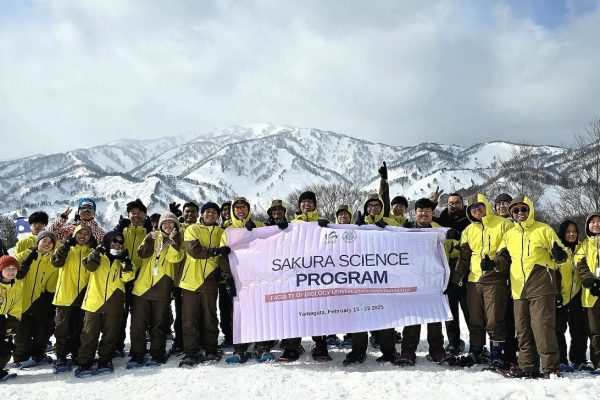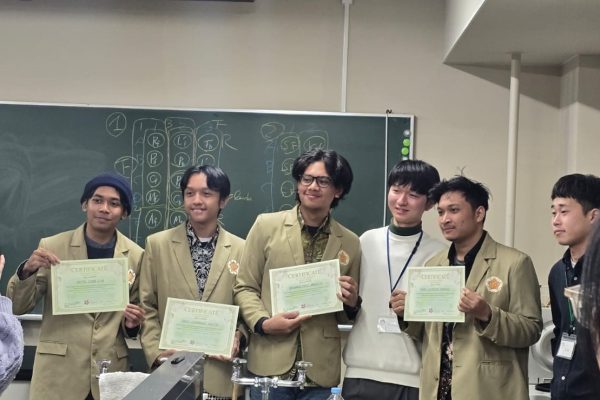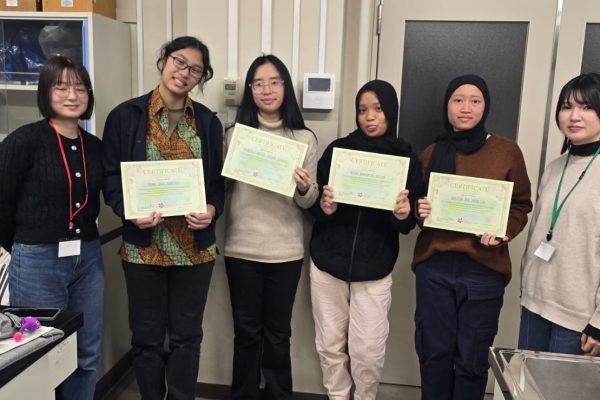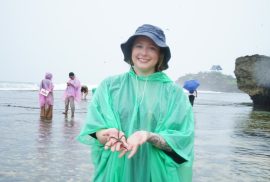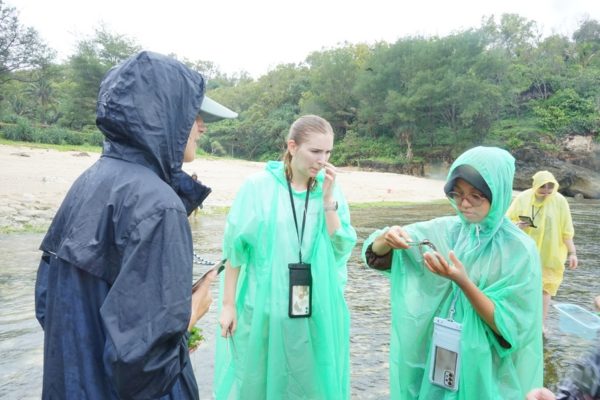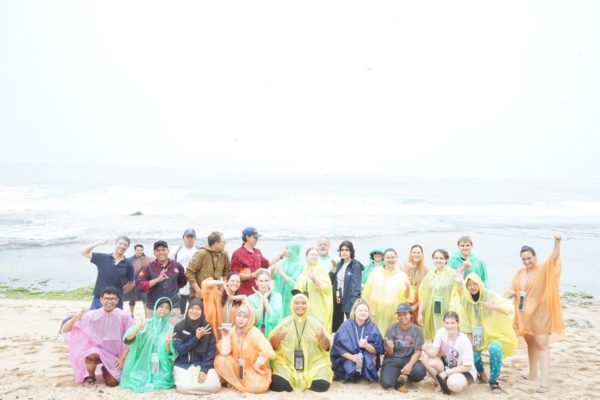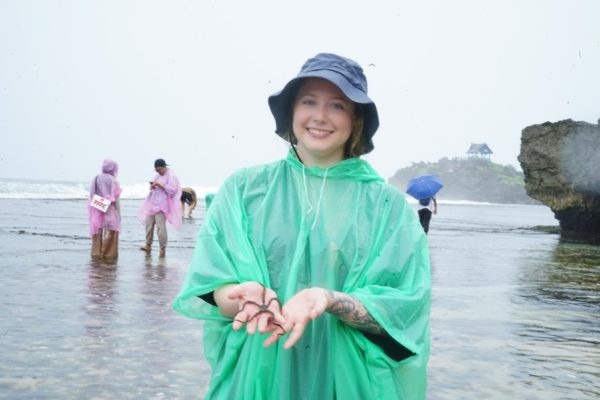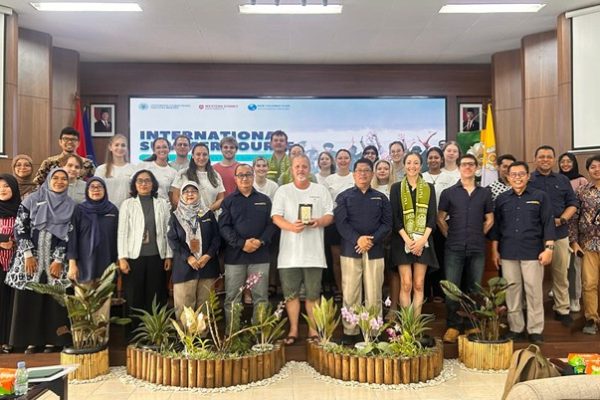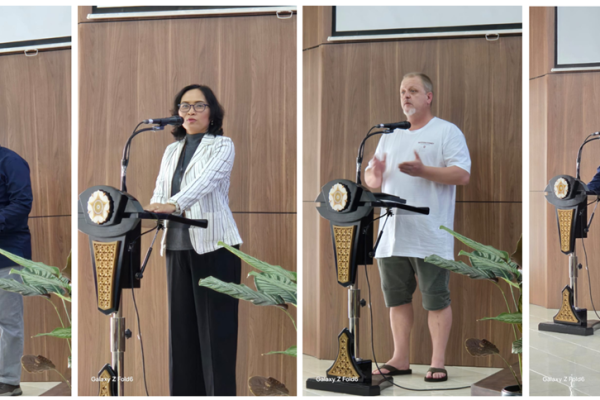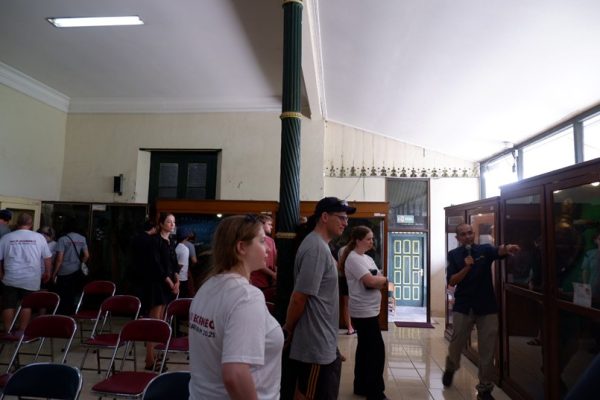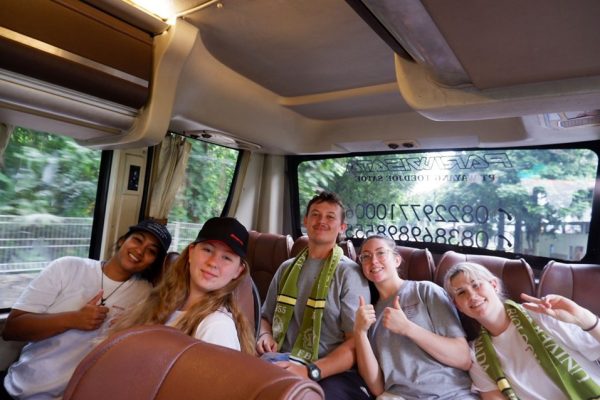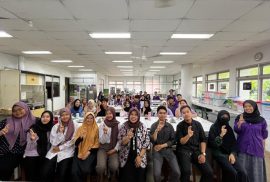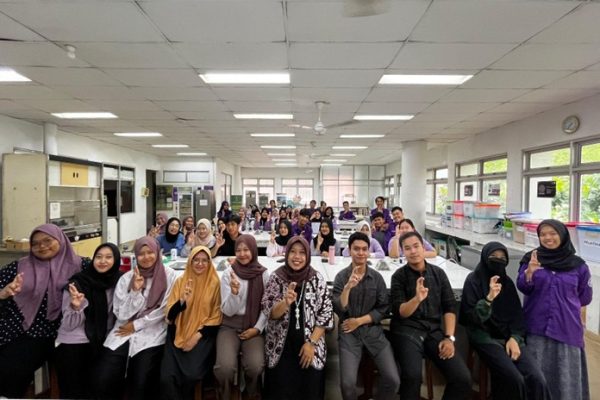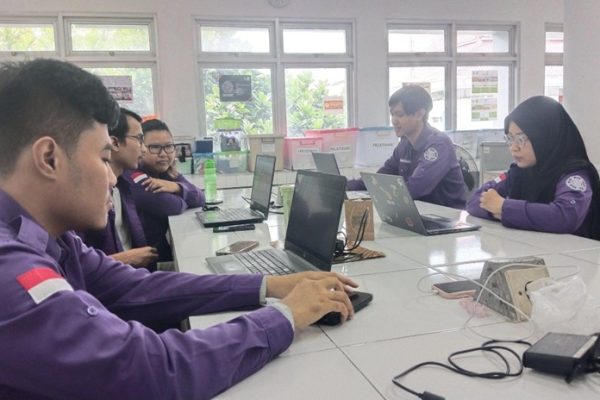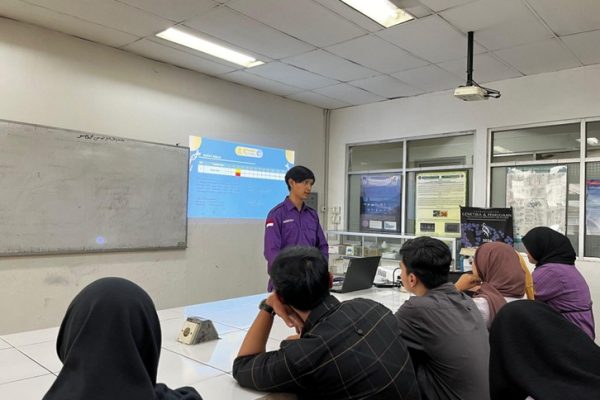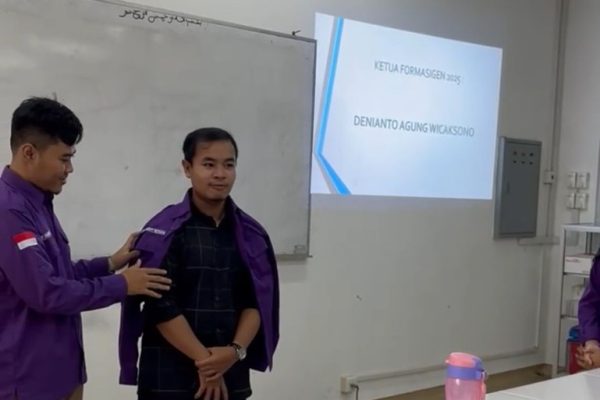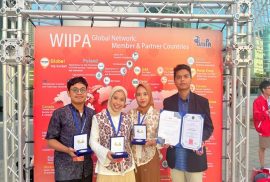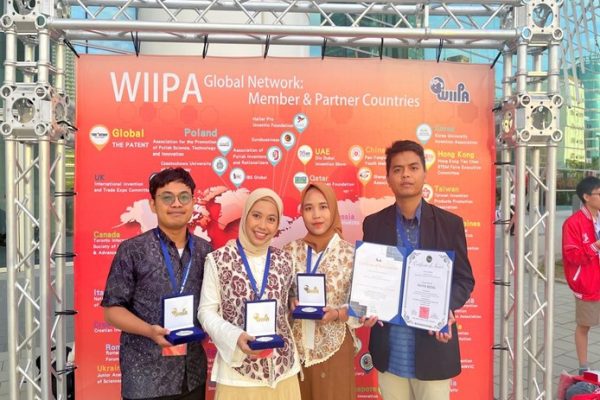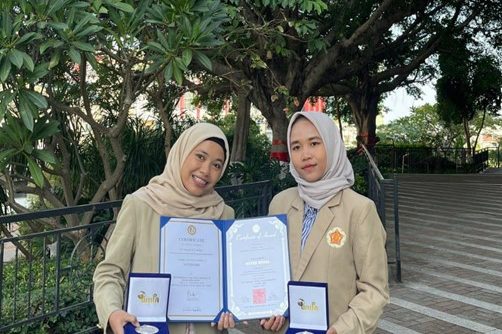Arsip:
SDG 5 : Gender Equality
As an attempt to improve and support women farmers group’s entrepreneurial independence in outdoor plants cultivation and utilization, a PKM-MBKM socialization has been conducted in partnership with Amanda Women Farmers Group, located at Padukuhan Kepuh Wetan, Kalurahan Wirokerten, Kapanewon Banguntapan, Kabupaten Bantul, Daerah Istimewa Yogyakarta on Thursday, May 8, 2025. The activity began with an introduction of the PKM-MBKM UGM Team, led by Prof. Diah Rachmawati, S.Si., M.Si., accompanied by students from the Faculty of Biology of Universitas Gadjah Mada class of 2022: Jovanka, Samantha Sonya Putri, Dhea Amelia, and Khansa Fauziah Rachman. During the socialization, a presentation was given regarding outdoor plants, focusing on the bioactive compounds and benefits of garden plants such as rosella, butterfly pea, lemongrass, and ginger.
These plants can be utilized to produce various products including tea, natural dyes, dried noodles, and soap. In addition, a brief explanation on how to cultivate the four plants was provided, allowing participants to apply and further develop the cultivation methods in the next session. This socialization of outdoor plants innovation to marketable products aimed to encourage product innovation, enhance the utilization of local natural resources, and strengthen the entrepreneurial independence of the Amanda Women Farmers Group. The participants were highly interested and partook in the discussion. They proposed to add outdoor plants such as aromatic ginger and suggested product innovations, namely herbal brews, natural rice dyes, and colored soaps. In the next activity, the benefits of the compounds contained in each outdoor plant will be explained. These activities support the Sustainable Development Goals (SDGs), specifically Goal 3—ensuring healthy lives and promoting well-being—by utilizing outdoor plants that can be transformed into value-added products with health benefits. They also align with Goal 17— strengthening partnerships —through the sustainable collaboration between the PKM-MBKM Team from the Faculty of Biology, Universitas Gadjah Mada, and their community partner, Amanda Women Farmers Group.
Yogyakarta, May 8, 2025 – A group of 20 students from Madrasah Aliyah Sayang Ibu in West Nusa Tenggara (NTB), accompanied by three teachers, visited the Animal Developmental Structure (SPH) Laboratory at the Faculty of Biology, Universitas Gadjah Mada (UGM) for an educational tour.
The visit was warmly welcomed by the Head of the SPH Laboratory, Dr. Ardaning Nuriliani, S.Si., M.Kes., who gave a presentation on UGM and the Faculty of Biology. The students showed great enthusiasm for the topics discussed, particularly regarding research activities, academic programs, and career prospects in the field of biology.
The session continued with a guided tour of the laboratory facilities, including the animal histology-embryology and animal anatomy sections, led by Sefi Nur Anggaeni, S.Si., a laboratory technician. The students had the opportunity to observe various microscopic specimens and animal organs, providing them with hands-on exposure to the world of science.
This visit reflects the Faculty of Biology UGM’s ongoing commitment to supporting the Sustainable Development Goals (SDGs), particularly SDG 4 (Quality Education) and SDG 17 (Partnerships for the Goals). By opening access to education and fostering collaboration with students from diverse regions, the faculty actively contributes to creating an inclusive and competitive educational ecosystem.
On Friday, 21st of March 2025 at 1-2.30 PM, Gentalk 4 was held in the Laboratory of Genetics and Breeding, Faculty of Biology UGM. This program is targeted for all Formasigen members and Biology UGM students in general. Mrs. Ganies Riza Aristya, S.Si., M.Sc., Ph.D., as Formasigen’s supervisor lecturer, also attended this program. Gentalk is an active discussion and sharing session between alumni or senior student and Formasigen’s member about the undergraduate thesis they are working on. In this Gentalk edition, the speaker is Laura Silka Karawina Rokhmat, Faculty of Biology UGM students batch 2021 under the supervision of Prof. Dra. Tuty Arisuryanti, M.Sc., Ph.D for her undergraduate thesis.
This program started with an opening from the Master of Ceremony, Ghefira Nurrahima Tsuraya, as a part of the Public Relation Division of HomeoGenesis Cabinet, followed by an opening speech by Mrs. Ganies Riza Aristya, S.Si., M.Sc., Ph.D. as the supervisor lecturer of Formasigen. The next activity is a presentation about “Genetic Variation Northern Calling Fiddler Crab, Gelasimus Borealis (Crane, 1975), from Kulon Progo, D.I.Yogyakarta Using 16s rRNA Mitochondrial Gene”. In this session, she shares about identification methods and genetic variation analysis of Northern Calling Fiddler Crab, Gelasimus Borealis, using 16s rRNA mitochondrial gene. After that, is the Q&A session followed by closing from the master of ceremony. Through Gentalk, we hoped that this could be a good start to create a vessel for an interesting and beneficial discussion. We also hope that this program can give a better understanding about all the research done by all the lecturers and their students in the Laboratory of Genetics and Breeding, Faculty of Biologi UGM. This research also hoped to help actualize the 15th Sustainable Development Goals (SDGs) that is Life On Land.
[Author: Formasigen]
On Friday, 14th of March 2025 at 1-2.30 PM, Gentalk 3 was held in the Laboratory of Genetics and Breeding, Faculty of Biology UGM. This program is targeted for all Formasigen members and Biology UGM students in general. Mrs. Ganies Riza Aristya, S.Si., M.Sc., Ph.D., as Formasigen’s supervisor lecturer, also attended this program. Gentalk is an active discussion and sharing session between alumni or senior student and Formasigen’s member about the undergraduate thesis they are working on. In the third Gentalk of this year, the speaker is Tan Rendy, Faculty of Biology UGM students batch 2022 under the supervision of Mrs. Ganies Riza Aristya, S.Si., M.Sc., Ph.D. for his undergraduate thesis.
This program started with an opening from the Master of Ceremony, Winda Lutfiana Hafidz, as a part of the Public Relation Division of HomeoGenesis Cabinet. The next activity is a presentation from Rendy about “ Genetic Transformation of Plants Using Agrobacterium tumefaciens”. In this session, Rendy shares his experience during the IISMA program in the UBC (University of British Columbia) surrounding genetic engineering including methods used in doing genetic transformation for the purpose of plant breeding. In this session, Rendy also talked about various websites to search for gene sequences such as Phytozone and also websites for designing primer such as Primer3Plus. He also shared how to verify the validity of the primer we designed using websites such as NCBI. In NCBI there is a feature called BLAST to check if the designed primer is specific to a certain gene. After that, is the Q&A session followed by closing from the master of ceremony. Through Gentalk, we hoped that this could be a good start to create a vessel for an interesting and beneficial discussion. We also hope that this program can give a better understanding about all the research done by all the lecturers and their students in the Laboratory of Genetics and Breeding, Faculty of Biologi UGM. This research also hoped to help actualize the second Sustainable Development Goals (SDGs) that is no hunger.
[Author: Formasigen]
On Sunday, 9th of March 2025, Open House Formasigen 2025 was held in the Auditorium of Tropical Biology, Faculty of Biology, UGM. This event was held for all Formasigen’s members, study group and organisation delegates, and all faculty of biology’s students. This event was attended by Mrs. Ganies Riza Aristya, S.Si., M.Sc., Ph.D., as Formasigen’s supervisor lecturer. Open House Formasigen 2025 is aimed to introduce the cabinet’s ministry and program for the following year to all related student organisations, especially organisation of Faculty of Biology UGM. Beside that, this event also used to open a discussion forum and partnership opportunity with external organisation. This event had 2 main session that are program socialisation of HomeoGenesis cabinet and talkshow from alumni.
The event was started by socialisation of this cabinet’s fundamental work approach by the chairman and vice chairman of Formasigen 2025 cabinet HomeoGenesis. The program socialisation carried on by program of each division from each head of division. After each presentation, the audience was given room to discuss and having QnA session. The next activity was a little ice breaking session followed by talkshow from Formasigen’s alumni. The main topic of the talkshow was the century of biology from Adib Fakhruddin Yusuf, S.Si., M.Sc. as the speaker. After that, the speaker was given souvenir from Formasigen’s current chairman followed by documentation. All guest that attend Open House were also asked to give their feedback and hopes for Formasigen 2025. With the realisation of this event, we hoped that all assigned program can be held without any significant challenge and the relation of Formasigen and external party can be better and can lead to more opportunity.
[Author: Formasigen]
On Saturday and Sunday, 22nd to 23rd of February 2025, had been held Grand Launching x Makrab at Sokkyo Ramen & Homestay. This event was held for all Formasigen’s members. This event was attended by Mrs. Ganies Riza Aristya, S.Si., M.Sc., Ph.D., as Formasigen’s supervisor lecturer and Mr. Indra Lesmana, S.Si., M.Sc. as one of the lecturer from the Laboratory of Genetics and Breeding Faculty of Biology UGM. Grand Launching x Makrab is aimed to introduce the cabinet’s ministry and program for the following year while also bringing the team closer. This event consisted of 4 main events that included a sharing session with the lecturers from Laboratory of Genetics and Breeding Faculty of Biology UGM, pre-seminar class, cabinet meeting, and other bonding activities.
The event was started by sharing session with Mrs. Ganies Riza Aristya, S.Si., M.Sc., Ph.D., as Formasigen’s supervisor lecturer and Mr. Indra Lesmana, S.Si., M.Sc. as one of the lecturer from the Laboratory of Genetics and Breeding Faculty of Biology UGM about Formasigen’s history and their Formasigen experience. The next activity was pre-seminar class with Thoriq Abdul Halim, Biology UGM student batch 21, as the presenter. Pre-seminar class is a session where a senior student presents tips and tricks about preparing and presenting proposal for undergraduate thesis to the new Formasigen members. After pre-seminar class, the next activity was a cabinet meeting where Denianto Agung Wicaksono, as the Chairman of Formasigen 2025, presented all programs plan for the following year to all Formasigen members. After Grand Launching x Makrab was held this year, we hoped that all Formasigen 2025 members could get to know each other better and be closer personally. It’s also hoped that all members can understand the history of Formasigen and the plan for the following year better after this sharing session. Pre-seminar class is also hoped to prepare all members for their undergraduate thesis proposal so that they can be more prepared and produce a better result.
[Author: Formasigen]
Yogyakarta, February 26, 2025 – Sixteen students from the Faculty of Biology, Universitas Gadjah Mada (UGM), participated in the Sakura Science Program at the Faculty of Science, Yamagata University, Japan. The program took place from February 15 to 23, 2025.
Accompanied by Prof. Dr. Bambang Retnoaji, Vice Dean for Academic and Student Affairs, the students began their activities with a field trip to the Mt. Gassan region to observe the environmental conditions covered in heavy snow in northern Japan. Led by Prof. Jun Yokoyama, the students were also taken on a tour of Yamagata City.
The following day, February 17, 2025, the students attended a series of lectures on biodiversity and recent advances in biological studies delivered by several professors, including Dr. Taisuke Kanao on “Termitophily: Unique insect diversity in termite nests”, Prof. Naoyuki Fujiyama on “Diversity of Asian insects with particular attention to researches on herbivorous ladybird beetles”, and Prof. Yutaka Miyazawa on “How do plant roots respond to water deficit? : Physiological and molecular biological dissection of root hydrotropism”.
From February 18 to 21, 2025, the students conducted a series of practical activities, including material selection for experiments, DNA isolation from organisms, DNA sequencing, and data analysis from PCR results. The outcomes of these activities were then compiled into reports and presented.
This program not only focused on academic aspects but also provided opportunities for students to learn about Japanese culture by visiting the Yamagata Prefectural Museum.
The Sakura Science Program aims to strengthen cooperation and knowledge exchange between the Faculty of Biology, UGM, and Yamagata University. This activity is expected to broaden students’ knowledge and insights in biology and strengthen the Faculty of Biology’s international network.
Yogyakarta, 22 January 2025 – Faculty of Biology, Universitas Gadjah Mada (UGM) together with Western Sydney University (WSU) officially opened the International Summer Course (ISC) at the Tropical Biology Auditorium, Faculty of Biology UGM. This activity took place in two locations, at UGM, Yogyakarta on 21-23 January 2025 and continued in Tarakan, Kalimantan on 24 January – 8 February 2025.
The ISC opening event was attended by 16 WSU students, 6 UGM students, 3 WSU staff-lecturers, and UGM lecturers. The opening begins with a report from Dr. Eko Agus Suyono, Vice Dean for Research, Community Service, Collaboration and Alumni Affairs, Faculty of Biology UGM, who also acts as Chair of the International Summer Course Organizer. He revealed that this activity was a follow-up to the collaboration between UGM and WSU that had been established over the last few years.
In his speech, Prof. John Charles Hunt, WSU lecturer, hopes that this activity can continue and expand collaboration in the research and academic fields in the future. In line with that, Prof. Dr. Puji Astuti, Director of Partnerships and Global Relations at UGM, expressed her appreciation for this collaboration, and stated that this ISC is the second in January 2025 after collaboration with Monash University and the UGM Vocational School. Prof. Puji also appreciated the focus of the summer course which raised the issue of biodiversity and environmental sustainability as well as UGM’s role in supporting conservation in Kalimantan and Papua.
Dean of the Faculty of Biology UGM, Prof. Dr. Budi Setiadi Daryono also gave a speech and opened the event. He said that Yogyakarta is a special place with its rich culture and nature, and hopes that ISC participants can take advantage of the opportunity to explore various aspects during activities in Yogyakarta. Prof. Budi also emphasized that this ISC is the first in 2025, before the implementation of the regular ISC in July-August.
The event continued with a visit to the Biology Museum, Faculty of Biology UGM, guided by Donan Satria, M.Sc., Lecturer in Animal Systematics, Faculty of Biology. The participants were very enthusiastic in listening to explanations about the history, role and various collections in this museum.
Next, the participants carried out field activities at the Marine Research Station, Faculty of Biology, Porok Beach, Gunung Kidul. This activity includes intertidal sampling and observing biodiversity on the beach. The exploration was guided by Dr. Rury Eprilurahman who focuses on animals and Dr.Eng. Thoriq Teja Samudra regarding Macroalgae. Martin Holland, International Summer Course Coordinator from WSU, said that this field trip was a warm-up before the main summer course agenda in Tarakan, Kalimantan.
Through this ISC, it is hoped that collaboration between WSU and the Faculty of Biology UGM can become closer, opening up opportunities for further collaboration in the academic and research fields, as well as contributing to achieving Sustainable Development goals (SDGs). This activity is in line with SDG 14 (Life Below Water), SDG 15 (Life on Land), and SDG 17 (Partnerships for the Goals), which focus on biodiversity conservation, environmental sustainability, and international cooperation.
With this spirit of collaboration, it is hoped that similar activities can continue and strengthen relations between UGM and WSU, as well as support conservation and nature preservation efforts in Indonesia and globally.
On Friday, December 13, 2024, from 10:00 AM to 4:00 PM WIB, the Year-End Evaluation and Member Deliberation of Formasigen were held at the Genetics and Breeding Laboratory, Faculty of Biology, UGM. The activity was attended by Mrs. Ganies Riza Aristya, S.Si., M.Sc., Ph.D., the Formasigen supervisor, the 2024 Formasigen team, and prospective members of the 2025 Formasigen team. This event served as a platform to review the Formasigen Bylaws and Articles of Association (AD/ART), evaluate the performance over the past year, and conduct a member deliberation to elect the 2025 Formasigen Chair. The objectives included updating the AD/ART based on recent agreements, monitoring the work programs carried out by the GenomCity Cabinet, identifying challenges encountered throughout the management period, providing constructive feedback and recommendations for program improvement, enhancing the quality of future work programs, and determining the next Formasigen Chair.
The event began with an opening by the MC, Enjang Sekaryati Prasetyaningrum, who served as the Head of the Public Relations and Networking Division of the 2024 GenomCity Cabinet. This was followed by a review of the AD/ART led by the first presidium, Muhammad Sena Budiman, and the second presidium, Ihsanti Tsania Fajriati. During this session, articles in the AD/ART were reviewed and updated to align with current conditions and ensure relevance for future management periods. After this session, there was a break for prayer, lunch, and rest.
The activity continued with the Year-End Evaluation and Member Deliberation. Before starting this session, remarks were delivered by Mrs. Ganies Riza Aristya, S.Si., M.Sc., Ph.D., who expressed gratitude to the 2024 Formasigen management team for fulfilling their responsibilities well. She also emphasized that the evaluations presented during this session should serve as valuable lessons for the next management team. Furthermore, she extended her encouragement and congratulations to the candidates for the 2025 Formasigen Chair and management team. Following the remarks, presentations were conducted by the heads of each division to report on the work programs implemented throughout the year, along with evaluations and suggestions for improvement. The presentation began with the Chair, followed by the Secretary and Treasurer, and continued with the heads of the PSDM (Human Resources Development), Scientific, Household, Public Relations and Networking, and Media and Information Divisions.
The event then proceeded with the 2024 Member Deliberation. This session included the introduction and presentation of visions and missions by the candidates for the 2025 Formasigen Chair, Denianto Agung Wicaksono, Muhammad Meshal Ramdhayesa, and Muhammad Rafi Fairuza. A question-and-answer session was held with the 2024 Formasigen team and the prospective 2025 team. Subsequently, a deliberation was conducted to elect the chair. The announcement of the elected 2025 Formasigen Chair, Denianto Agung Wicaksono, followed, along with the handover of responsibilities from the 2024 Chair to the 2025 Chair. The event concluded with a documentation session and a closing. [Author: Formasigen]
The Kaohsiung International Invention and Design Expo (KIDE) 2024 serves as a prestigious platform for researchers to present and compete their innovations at the international level. Organized by the World Invention Intellectual Property Association (WIIPA) and the Taiwan Invention Products Promotion Association (TIPPA), KIDE 2024 took place from December 5-7, 2024, in Kaohsiung, Taiwan. The competition featured 447 innovations from participants representing 31 countries.
The principle “Teamwork Makes the Dream Work” aptly describes the success achieved by two UGM Biology Master’s students, Syefrina Rosyada and Yessy Ratna Siwie, along with their interdisciplinary teammates Alan Mulana K. (Faculty of Engineering) and Sunardi (Faculty of Agriculture). Their collaboration resulted in a silver medal at KIDE 2024 for their groundbreaking innovation, the SEATTER (Seawater Converter).
The SEATTER project was inspired by the clean water crisis faced by residents of Jerowaru District in East Lombok Regency. The area experiences low annual rainfall and high sunlight intensity, which forces local communities to purchase clean water for daily needs. Addressing this challenge, the team developed SEATTER, a solar-powered desalination technology that converts seawater into clean, usable water. This innovation provides a sustainable solution for coastal communities struggling with clean water scarcity.
The SEATTER technology directly contributes to Indonesia’s efforts in achieving the Sustainable Development Goals (SDGs), specifically SDG 6: Ensure availability and sustainable management of water and sanitation for all. This innovation enhances clean water access for underserved coastal areas.
This remarkable achievement underscores the Faculty of Biology’s commitment to nurturing student potential and encouraging excellence at the international level. It is hoped that this success will inspire other students and young Indonesians to continue innovating, creating, and making meaningful contributions to science and global society.
[Writer: Syefrina Rosyada]


